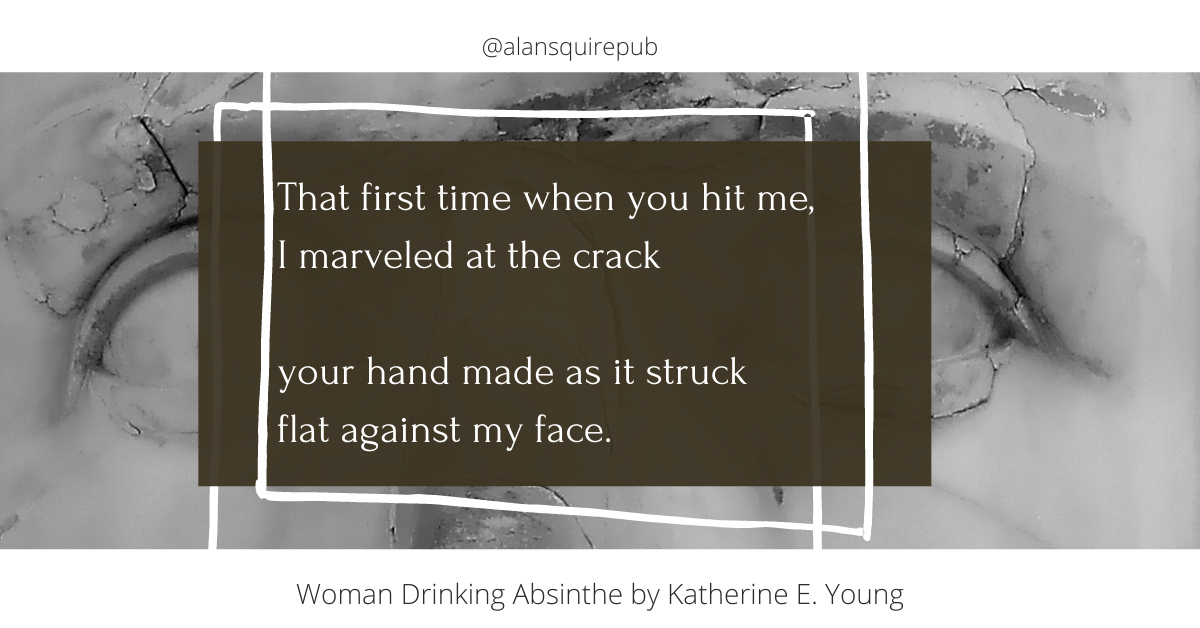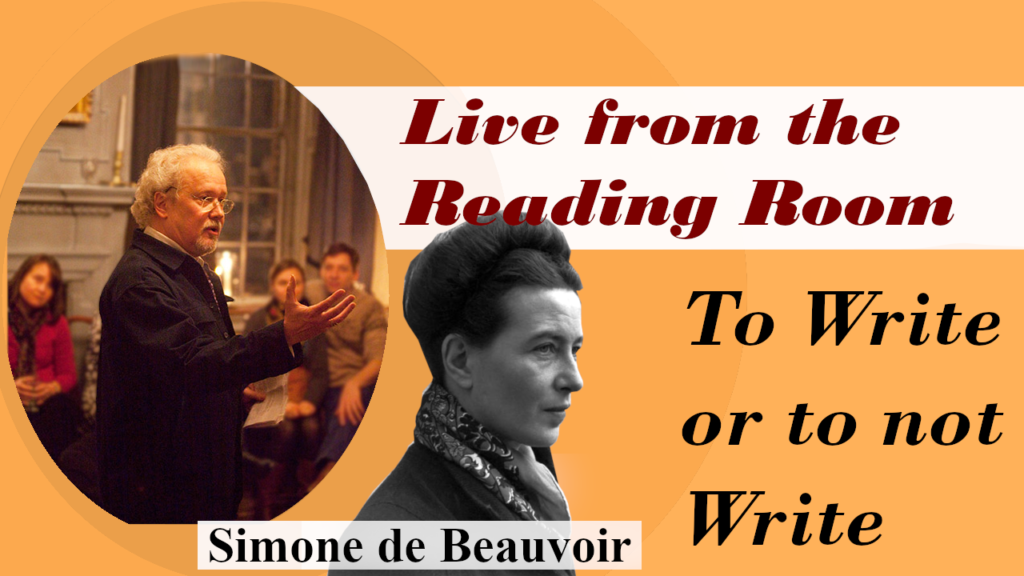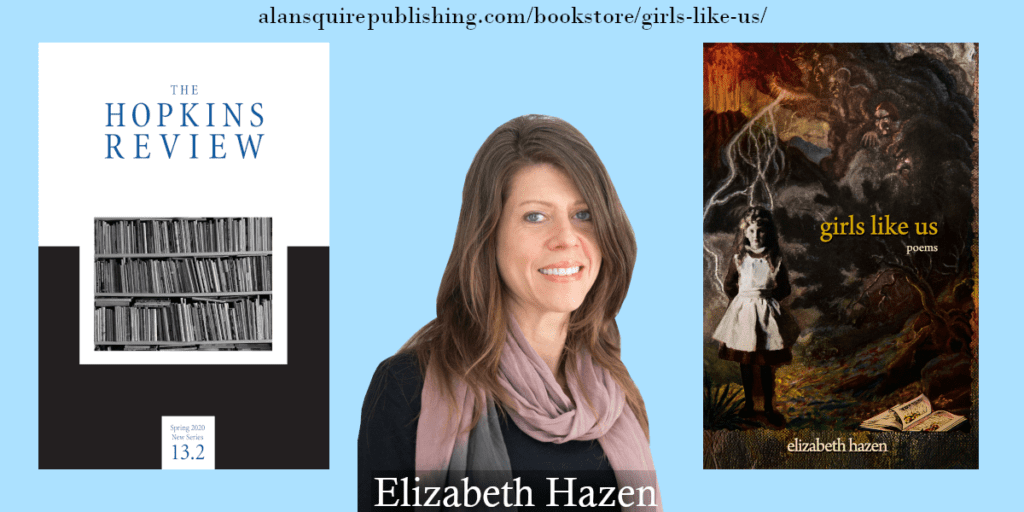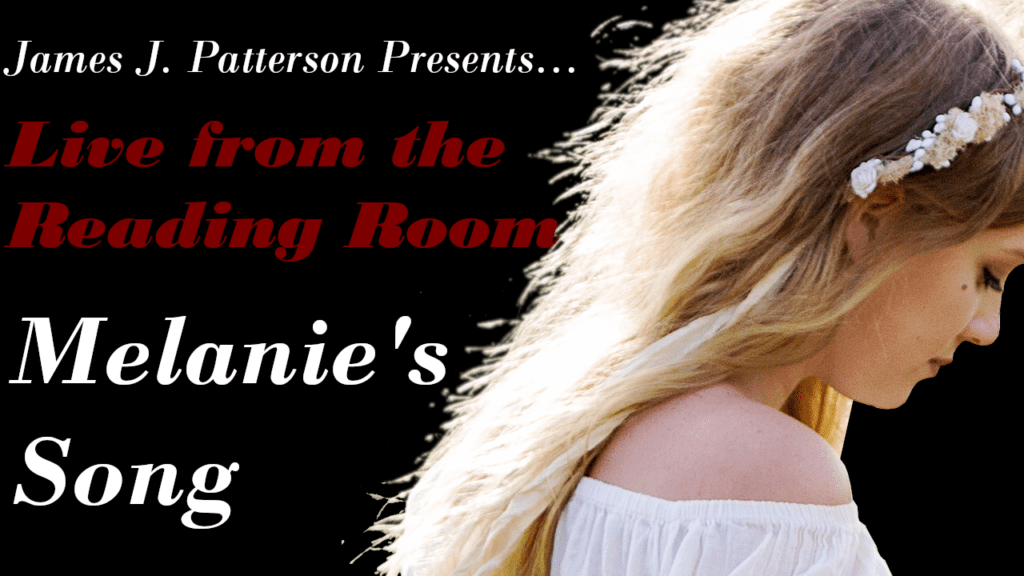WOMAN DRINKING ABSINTHE Analyzed by Billy Mills
Former Guardian Literary Journalist, Billy Mills, analyzes the conception of love in Katherine E. Young's new collection.

"Young’s core subject is love, but there’s nothing redemptive or particularly healing about its manifestations," writes Billy Mills in his analysis of Young's Woman Drinking Absinthe. Elsewhere he compares the different manifestations of this theme to coeval poets Christopher Jane Corkery and James Roome.
Mills analysis is fitting for Young's work which comes from a deeply literary place and is steeped in evocative allusion. Mills places WDA alongside the likes of Pound and Eliot in his thinking. Like these poets, Young uses unorthodox and historically informed forms and diction in her poetry.
An excerpt of Mills' analysis follows:
"The fourth (of five) sections of Katherine E. Young’s Woman Drinking Absinthe is a single sequence, ‘Place of Peace’ that takes off from a visit to the Civil War memorial at Shiloh National Military Park. The fourth section of the sequence opens with he line ‘Who doesn’t desire to be mesmerized by love?’ and ends ‘once more I fear the shadow of his hand.’ These lines could be said to serve as the twin poles of the entire collection.
For Young’s core subject is love, but there’s nothing redemptive or particularly healing about its manifestations."
The poems in Katherine E. Young’s Woman Drinking Absinthe concern themselves with transgressions. Lust, betrayal, guilt, redemption: Young employs fairy tales, opera, Impressionism, Japonisme, Euclidean geometry, Greek tragedy, wine, figs, and a little black magic to weave a tapestry that’s as old as the hills and as fresh as today’s headlines.
New LFTRR Tackles the Question: Should We Write?
In this episode of Live from the Reading Room, James J. Patterson reads selections from Simone De Beauvoir’s “The Mandarins” and Richard Peabody’s “The Richard Peabody Reader” all in pursuit of the question: Should I write?
The Johns Hopkins Review Publishes two Poems by Elizabeth Hazen
Two poems from Elizabeth Hazen’s new collection Girls Like Us have been published in the spring edition of the esteemed Hopkins Review.
James J. Patterson Reads from MELANIE’S SONG on Latest LFTRR
James J. Patterson tackles the immaculate prose of author Joanna Biggar on the eleventh episode of Live from the Reading Room.


